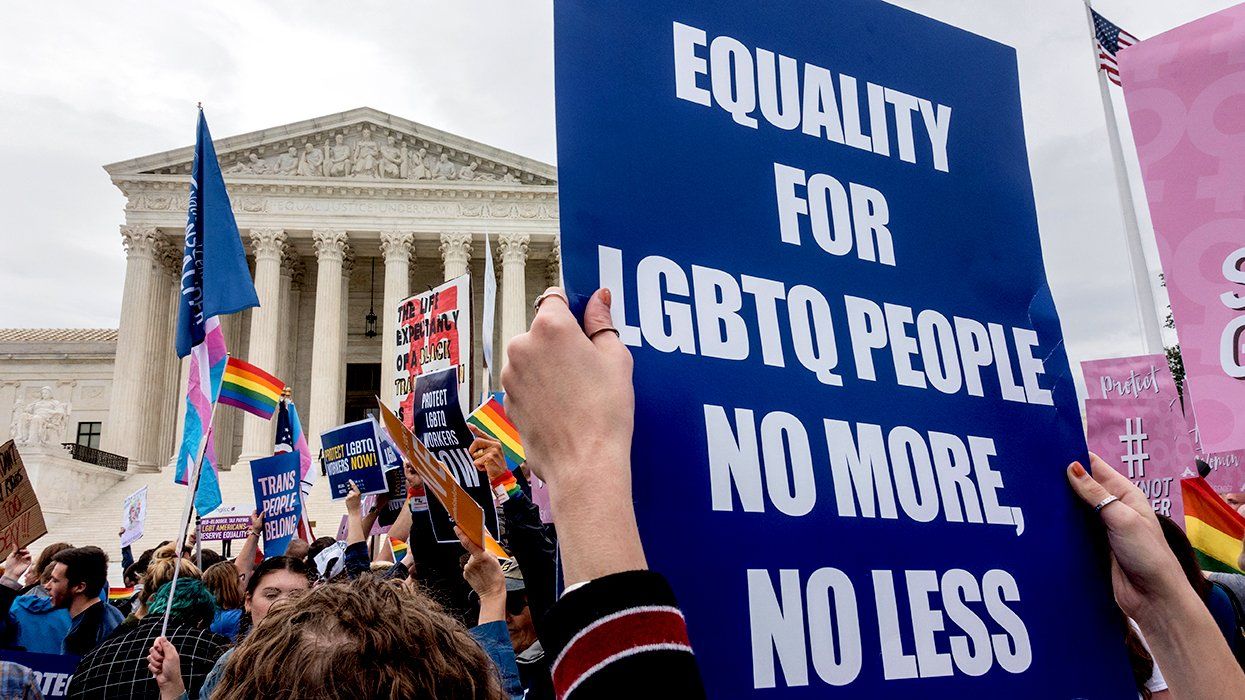L.W., a 16-year-old transgender girl from Tennessee, is at the heart of a historic case that could reshape the rights of transgender youth across the country.
Keep up with the latest in LGBTQ+ news and politics. Sign up for The Advocate's email newsletter.
On Wednesday, the U.S. Supreme Court will hear arguments in U.S. v. Skrmetti, a challenge to Tennessee’s 2023 law banning gender-affirming medical care for minors, including puberty blockers and hormone therapies. The case carries immense personal and national stakes, and L.W. hopes it will make thousands of kids feel “seen” for who they are.
“It’s not very comfortable being trapped in [your body] because it just doesn’t feel like you,” L.W. told ABC News. Since starting treatment in 2022, she says her quality of life has dramatically improved. “I feel normal now,” she said, describing the impact of the care she is fighting to protect.
Related: What is U.S. v. Skrmetti, the Supreme Court case that could change gender-affirming care forever?
L.W.’s family, represented by the American Civil Liberties Union, filed the lawsuit last year, arguing that the law unconstitutionally discriminates on the basis of sex and undermines parental rights. Since the ban took effect, the family has been forced to travel 10 hours round-trip to another state to continue L.W.’s treatment, a burden that has disrupted her education and strained their resources.
Samantha Williams, L.W.’s mother, criticized the hypocrisy of Tennessee lawmakers who championed “parental rights” during COVID-19 but now dictate medical decisions for families like hers. “They made this medical decision for our child,” Samantha said.
Supporters of the law argue that it is necessary to protect minors from potentially irreversible treatments, citing what they claim is insufficient long-term research. However, major medical associations, including the American Academy of Pediatrics, strongly support gender-affirming care, emphasizing its safety and the importance of individualized treatment.
Dr. Ben Hoffman, president of the American Academy of Pediatrics, told ABC News, “It all begins and ends with science. This is not about any sort of agenda.”
The case is also a landmark moment for Chase Strangio, the ACLU attorney representing the family, who will become the first out transgender person to argue before the Supreme Court. In an interview with The Advocate, Strangio spoke about the stakes of the case. “At this moment, what I’m thinking about is just the stakes for families across the country,” Strangio said.
Related: Meet the transgender lawyer leading a bold fight to show Supreme Court justices that trans lives matter
Strangio explained that the law targets transgender youth specifically. “This law bans treatment only when the government thinks those treatments are being used in a gender-nonconforming manner. Tennessee is saying you can’t have hormones if they allow you to live in a way that we don’t think is right for your gender. But they allow those same treatments when they align with what the government deems acceptable,” he said. That, according to Strangio, violates the constitution’s Equal Protection clause.
For L.W., the fight is about more than legal arguments—it’s about survival and dignity. “I want to listen to the doctors. I want to listen to my kid. I want to take care of her,” her father, Brian Williams, said.
The outcome of this case could set a precedent for the more than 300,000 transgender teens in the U.S. and the broader LGBTQ+ community. As Strangio told The Advocate, “It doesn’t start or stop with transgender families—it’s about government intrusion into all our decision-making.”
For now, L.W. hopes her plea will resonate with the justices. “I feel amazing after [treatment],” she said. “Maybe it’s just because the gender dysphoria was so bad.”
















